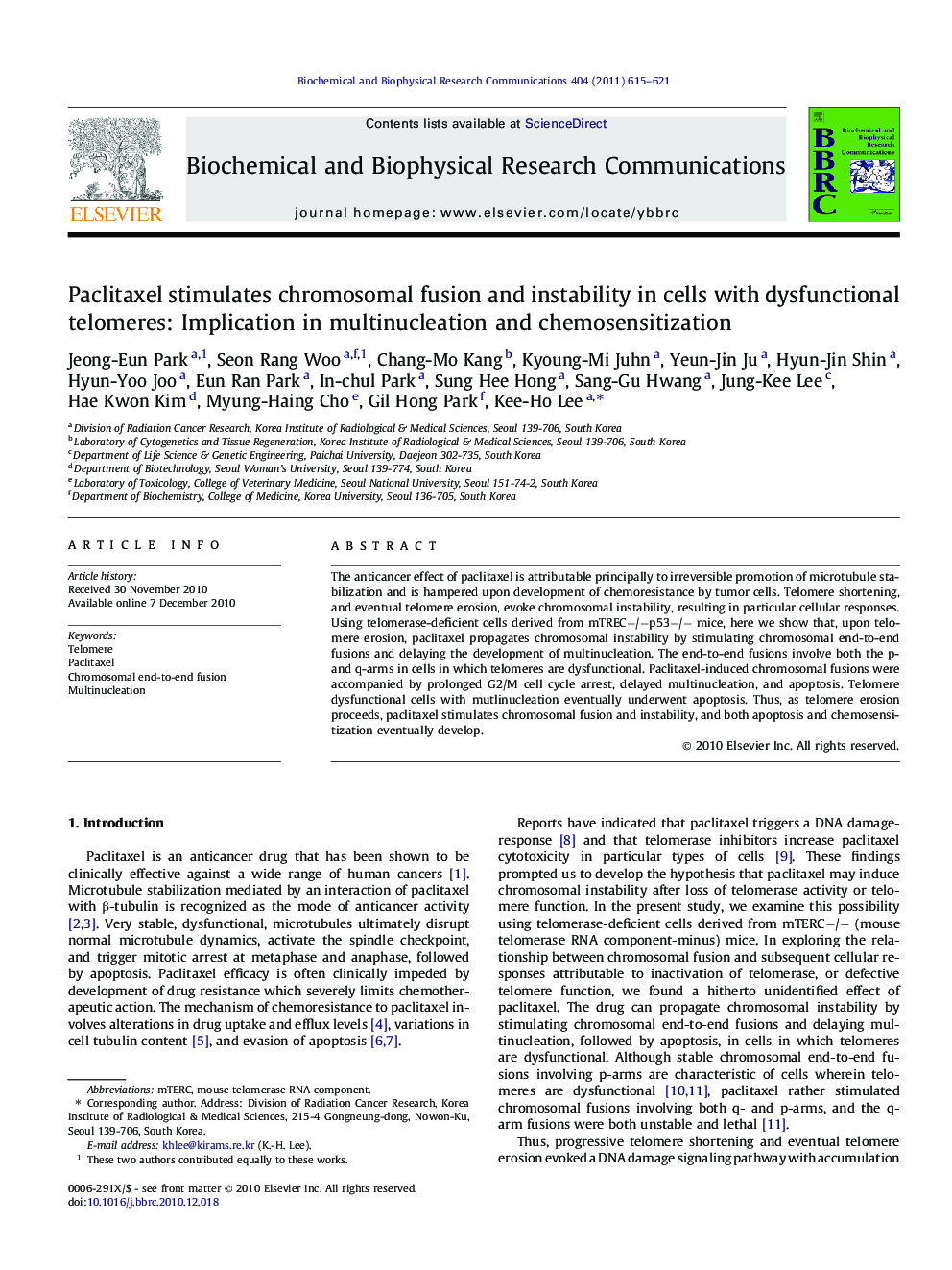| Article ID | Journal | Published Year | Pages | File Type |
|---|---|---|---|---|
| 1930708 | Biochemical and Biophysical Research Communications | 2011 | 7 Pages |
The anticancer effect of paclitaxel is attributable principally to irreversible promotion of microtubule stabilization and is hampered upon development of chemoresistance by tumor cells. Telomere shortening, and eventual telomere erosion, evoke chromosomal instability, resulting in particular cellular responses. Using telomerase-deficient cells derived from mTREC−/−p53−/− mice, here we show that, upon telomere erosion, paclitaxel propagates chromosomal instability by stimulating chromosomal end-to-end fusions and delaying the development of multinucleation. The end-to-end fusions involve both the p- and q-arms in cells in which telomeres are dysfunctional. Paclitaxel-induced chromosomal fusions were accompanied by prolonged G2/M cell cycle arrest, delayed multinucleation, and apoptosis. Telomere dysfunctional cells with mutlinucleation eventually underwent apoptosis. Thus, as telomere erosion proceeds, paclitaxel stimulates chromosomal fusion and instability, and both apoptosis and chemosensitization eventually develop.
Research highlights► Paclitaxel serves as a stimulator of chromosomal fusion in cells in which telomeres are dysfunctional. ► Typical fusions involve p-arms, but paclitaxel-induced fusions occur between both q- and p-arms. ► Paclitaxel-stimulated fusions in cells in which telomeres are dysfunctional evoke prolonged G2/M cell cycle arrest and delay multinucleation. ► Upon telomere erosion, paclitaxel promotes chromosomal instability and subsequent apoptosis. ► Chromosomal fusion enhances paclitaxel chemosensitivity under telomere dysfunction.
